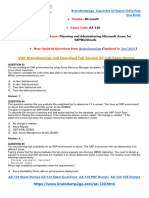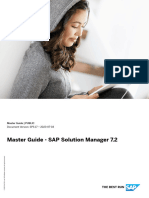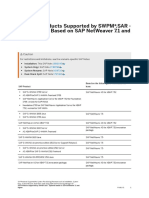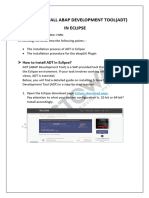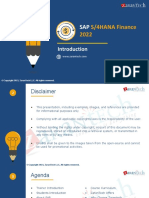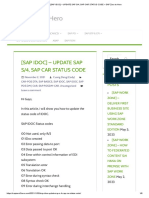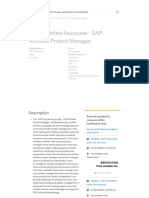0% found this document useful (0 votes)
365 views17 pagesHA201 EN Col18 CO A4
This course outline covers SAP HANA high availability and disaster tolerance administration, with topics including explaining SAP HANA's high availability features, installing high availability systems, fault tolerance using scale-out, and disaster tolerance through storage and system replication. The course contains five units covering an overview of high availability features, fault tolerance, disaster tolerance, tenant replication, and additional scripts.
Uploaded by
apcomitCopyright
© © All Rights Reserved
We take content rights seriously. If you suspect this is your content, claim it here.
Available Formats
Download as PDF, TXT or read online on Scribd
0% found this document useful (0 votes)
365 views17 pagesHA201 EN Col18 CO A4
This course outline covers SAP HANA high availability and disaster tolerance administration, with topics including explaining SAP HANA's high availability features, installing high availability systems, fault tolerance using scale-out, and disaster tolerance through storage and system replication. The course contains five units covering an overview of high availability features, fault tolerance, disaster tolerance, tenant replication, and additional scripts.
Uploaded by
apcomitCopyright
© © All Rights Reserved
We take content rights seriously. If you suspect this is your content, claim it here.
Available Formats
Download as PDF, TXT or read online on Scribd
/ 17
























